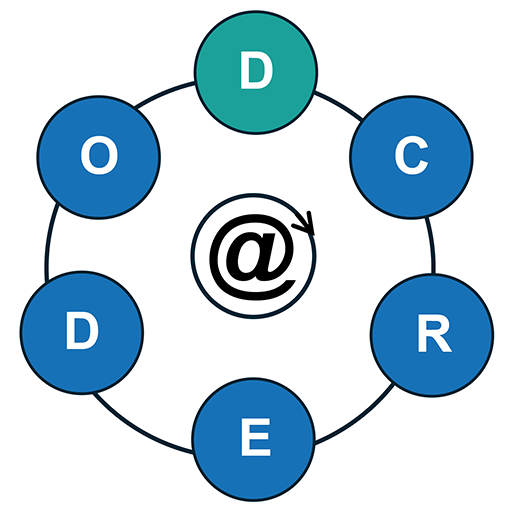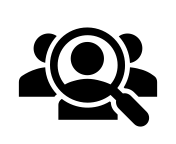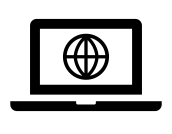On May 27–28, 2025, members of the D-CREDO project came together in Munich for our second in-person meeting since the project began. Sixteen participants from five partner institutions joined onsite (with more joining online) to share progress, exchange ideas, and look ahead to the next phase of our work. The meeting was hosted by Instruct, and we were warmly welcomed to the city by Dorothee, who opened the conversation for two days of collaboration.
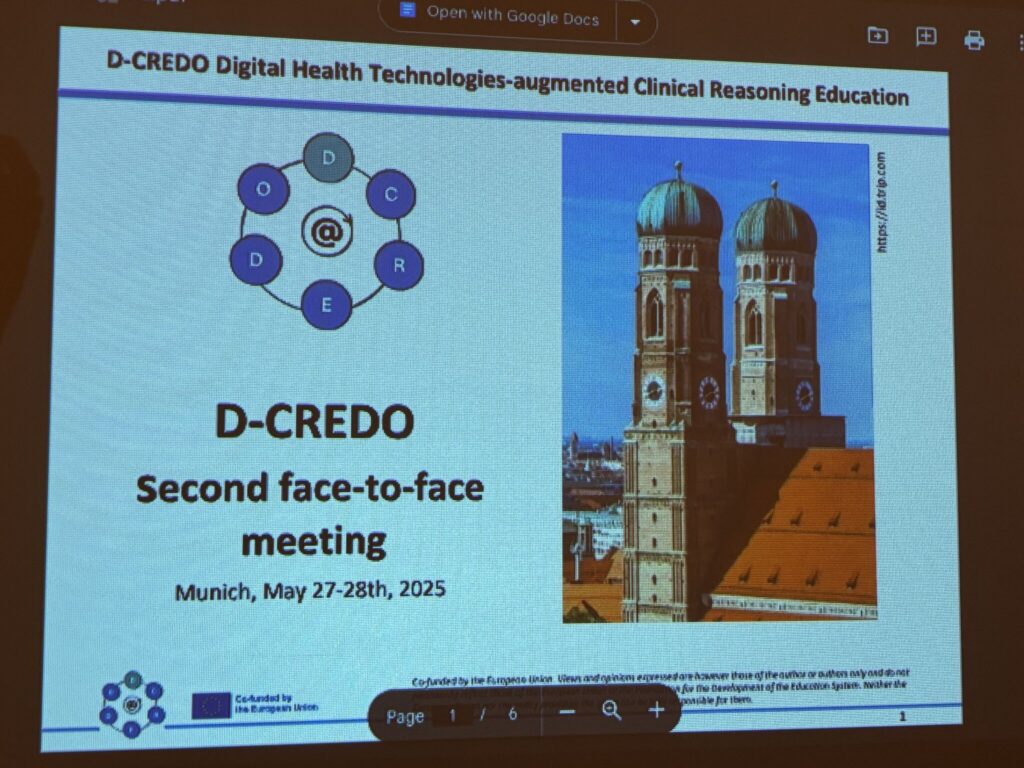
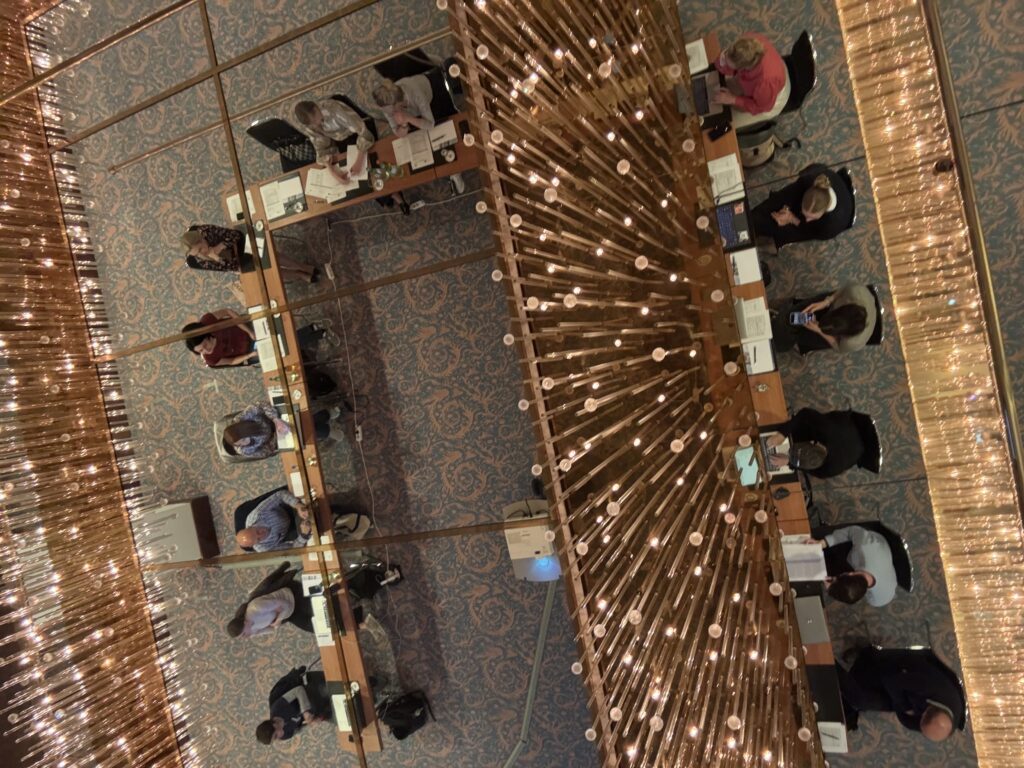

Day One: Reflecting on our Progress
The meeting opened with a welcome and project overview from Andrzej, summarising our achievements over the past nine months and outlining the goals for the project’s second year. We then took a closer look at all of our work packages.
Jonas (Erasmus MC) presented a comprehensive update on Work Package 2, focusing on the development of the D-CREDO white paper. The draft version, shaped by 119 individual comments, is scheduled for publication in June. The discussion also addressed dissemination strategies, including a series of thematic blog posts, direct outreach to associated partners, and the possibility of publishing a complementary article based on the white paper.
As an update on Work Package 3, Sarah (UMIT) presented a curated collection of digital tools relevant to clinical reasoning education. The tools, which will each be described in a one-page format, form the basis of a D-CREDO “digital toolbox,” which will be expanded and regularly updated. ChatGPT and other generative AI tools were discussed as important emerging technologies. The consortium agreed on the need to address responsible and effective student use of such tools, including guidance and practical tips.
As one of the next steps in Work package 3, Inga (Instruct) led a curriculum development session focused on blueprinting activities and the integration of selected tools into Moodle-based learning units. In small group work, participants created three versions of Learning Unit 101 “Foundations of Digital Health Technologies in Clinical Reasoning” and tested the usability and findability of educational content within the platform. Written feedback and ideas were collected for further discussion at an upcoming online meeting.
One of the key highlights of the first day was a research pitch session, where six speakers presented their current work and future research plans. Topics ranged from telerehabilitation systems and AI-driven feedback to the impact of generative AI on the early stage of clinical reasoning education. Since the session was met with such enthusiasm, the group decided to include regular short research updates in future online meetings and to organise a dedicated research-focused session at the end of 2025.
An evening of Italian food and good company at La Veccia Masseria helped refuel us for the next day’s collaborative efforts.
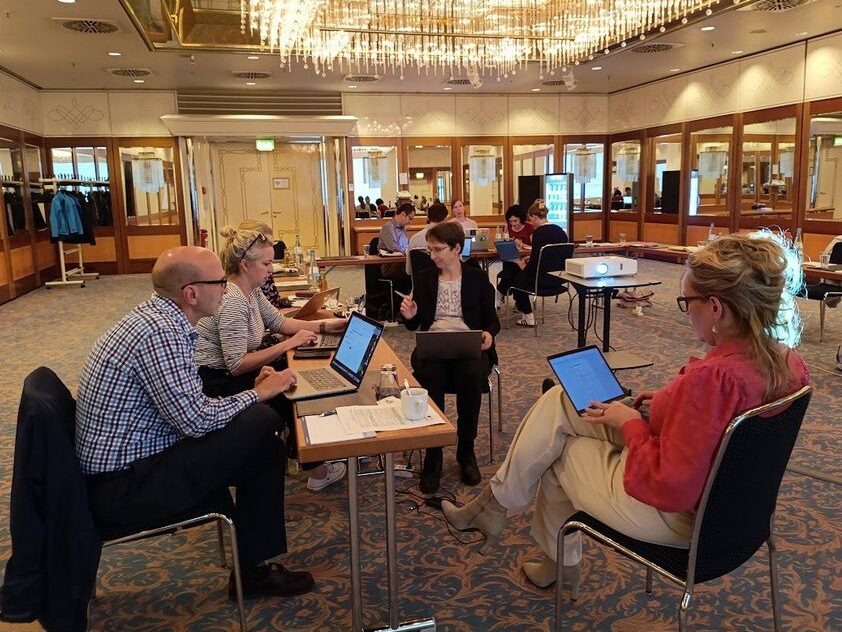
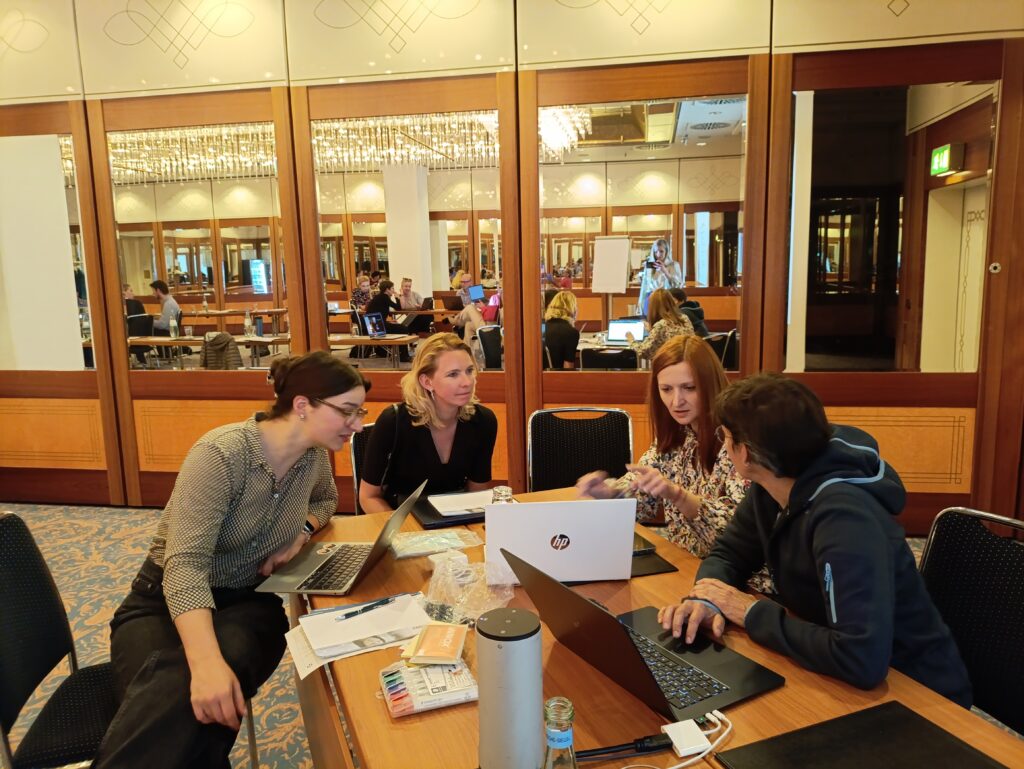
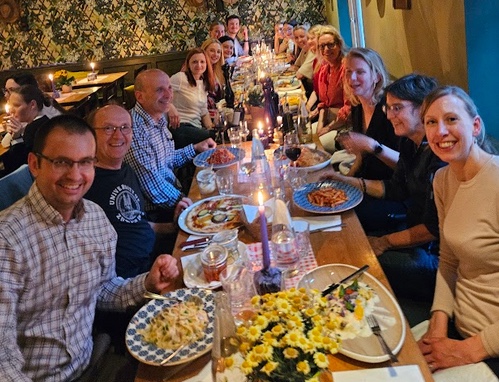
Day Two: Looking Ahead
Martin (Instruct) opened the second day with a short presentation on the healthcare infrastructure of Munich, connecting local context with the broader goals of the project.
Tetiana (BSMU) introduced the work of the Work Package 4 team, which has focused on developing assessment tools for digital learning units. Participants engaged in small-group work to evaluate five proposed Quality Checklists and contributed to a card-sorting activity related to learning analytics. This interactive session encouraged reflection on the kinds of data educators value most in assessing digital learning outcomes.
Michelle (UMIT) shared dissemination analytics, including web and social media activity, and launched a short survey to evaluate the quality and reach of current efforts. She also invited the D-CREDO team to next year’s in-person meeting – scheduled for June 2026 in Hall in Tyrol!
Finally, we discussed sustainability, a topic that’s always challenging but critical for long-term impact. Martin (Instruct) shared reflections from previous EU projects (Waves and DID-ACT), where the Business Canvas Model was used. But we considered whether a Mission Model Canvas, focused more on purpose and stakeholders, might better suit an academic context like ours. If we want D-CREDO to last, we need to think beyond products and focus on community and academic networks.
Before closing, Andrzej (JU) summarized the many strands of discussion — from tools and teaching to research and sustainability. The meeting showed that our strength lies in our diversity: of perspectives, disciplines, and institutions. We left Munich with a clearer vision and stronger connections and we look forward to continuing the journey together!
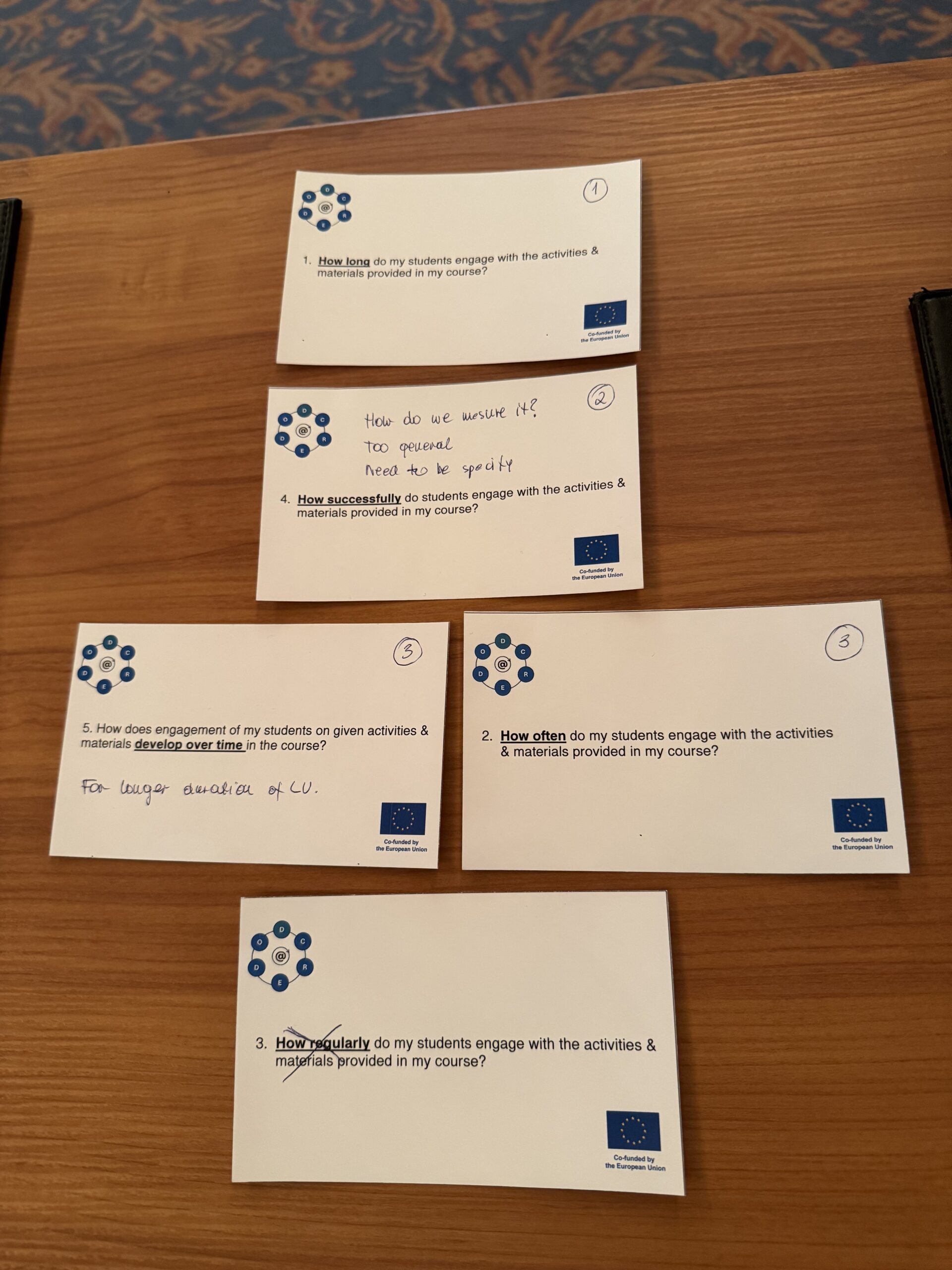
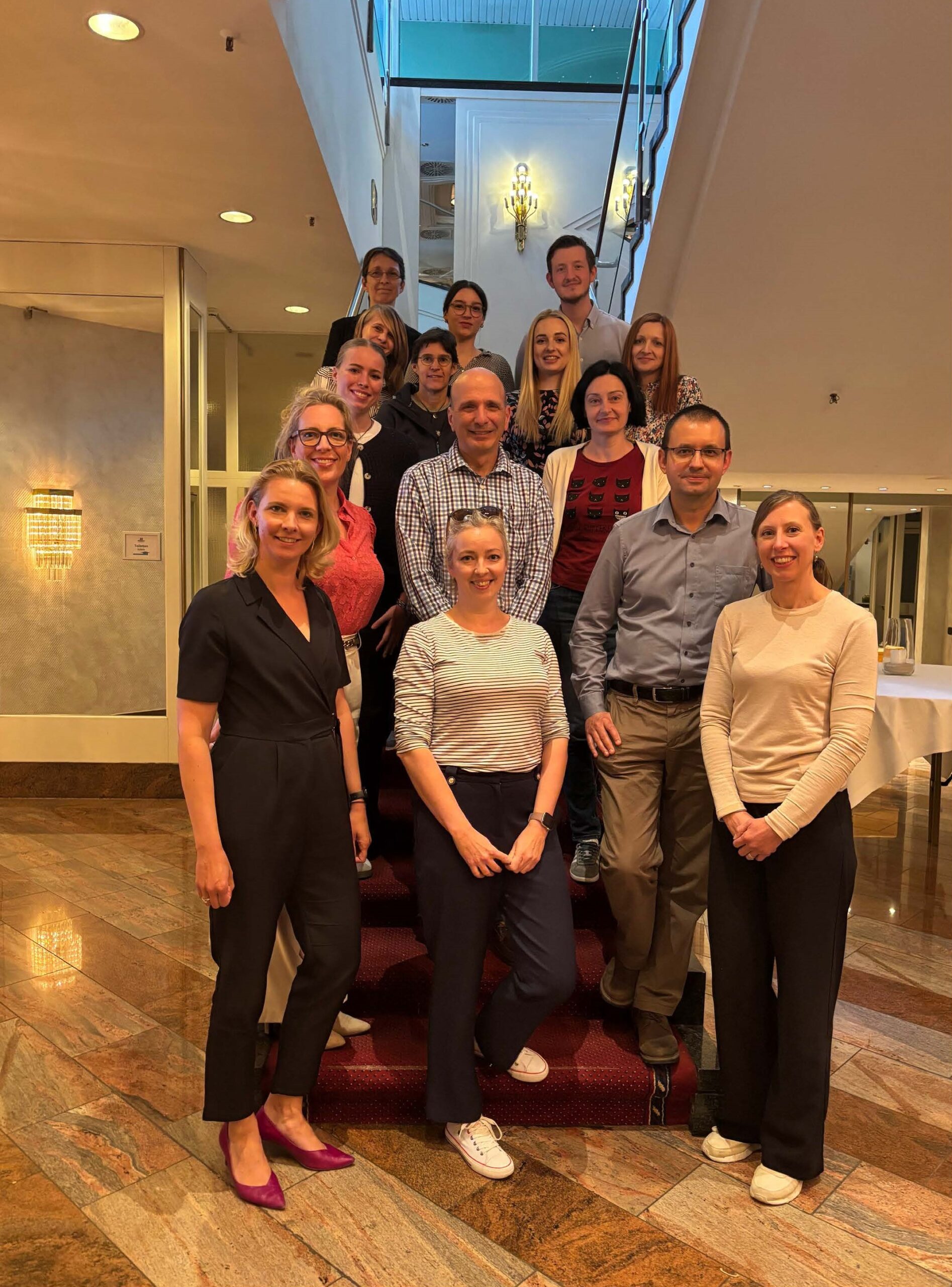

Stay connected with D-CREDO and follow our journey on LinkedIn for more updates, insights, and stories.
